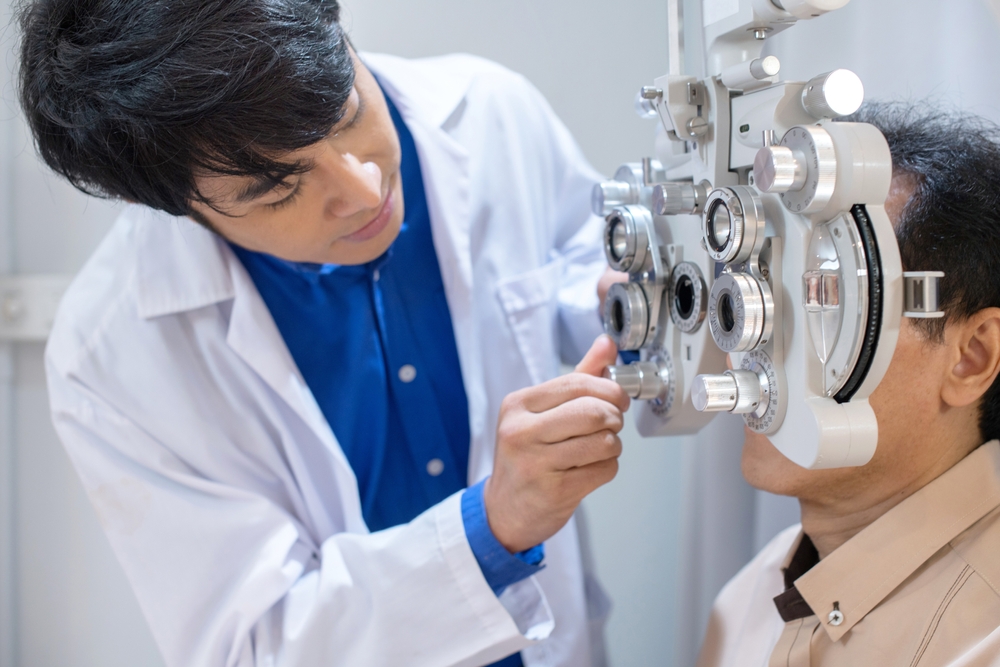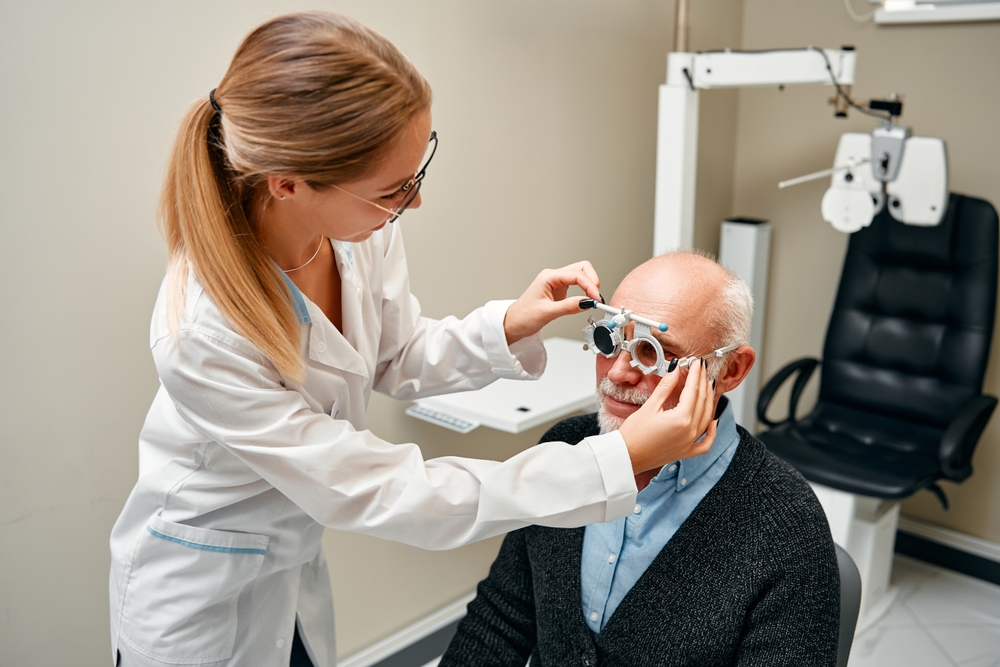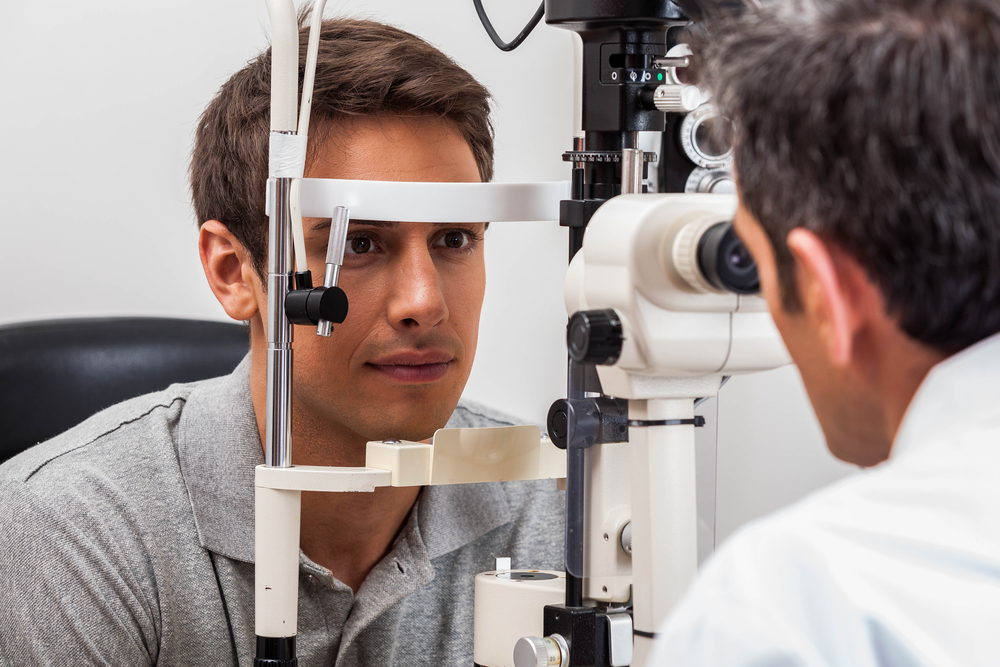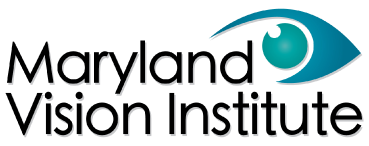Do I Really Need Annual Eye Exams If My Vision Is Fine?
April 29, 2024
If you don’t already wear glasses or contact lenses and are not experiencing any issues with your vision, you may be wondering if you really need to schedule an annual eye exam. But before you decide to put off making that appointment for another year, you should first consider some of the most important reasons for an annual eye exam.
Keep reading to learn why eye exams are important, even if your vision is fine!
Vision Correction
Changes in the quality of your vision may be so gradual that you don’t immediately notice. The most common refractive errors are nearsightedness and farsightedness, which typically develop in childhood.
For this reason, eye exams are essential for children who may be unable to explain specific vision issues. Beyond this, an annual exam ensures that your vision stays crystal clear.
Early Diagnosis of Eye Disease
Some of the most serious but common eye conditions are asymptomatic in their early stages. Without an annual eye exam, your vision may already have been damaged before you receive a diagnosis.
Catching an eye condition before it progresses can prevent irreversible damage to the structures of your eye that are vital to clear vision. Early diagnosis of certain eye conditions gives you a better chance for more effective treatment to preserve the health of your eyes.
Accurate Vision Prescriptions
If you wear glasses or contact lenses, an annual eye exam guarantees that your eye prescription is accurate and up to date. Wearing corrective glasses or contact lenses with an outdated prescription can lead to eye strain, eye fatigue, and headaches.
Most contact lens wearers are required to have an annual exam. Because misuse of contact lenses can cause eye infections and corneal abrasion, it is important for wearers to have their eyes checked before they renew their prescription.
Vision Development in Children
Children’s vision can change rapidly as they age. The development of an untreated refractive error, like nearsightedness or farsightedness, can lead to problems with safe mobility or success at school.
After they start school, children should have annual eye exams to ensure they are seeing their world and the blackboard as clearly as possible. An annual exam can detect a vision problem a child might not yet have the words to describe.
 Signs of Chronic Disease
Signs of Chronic Disease
The eyes can be the site of some serious complications of chronic diseases, including diabetes, autoimmune disorders, and high cholesterol. An experienced eye doctor can spot the signs of these diseases during an annual eye exam.
Can Identify Urgent Health Issues
Annual eye exams can detect urgent health issues that may not present obvious symptoms. During a comprehensive eye exam, your optometrist can identify signs of stroke and even brain tumors.
Regular eye exams allow for prompt intervention and management of these conditions, protecting both your vision and overall health. Prioritizing annual eye exams is an essential step in maintaining your well-being, regardless of your current visual acuity.
Treatment of Common Eye Complaints
More people than ever spend their working days and leisure hours looking at an electronic screen. This can lead to dry eyes, one of the most common causes of eye discomfort.
At an annual exam, you can talk to your eye doctor about what you can do to soothe eyes that are experiencing the symptoms of dry eye. They can provide you with effective treatments and give you advice on how to prevent eye discomfort in the future.
Maintenance of Eye Health
As you age, annual eye exams become essential to maintaining the health of your eyes. Many serious eye conditions, including cataracts, glaucoma, and macular degeneration, most commonly occur in older adults.
Aging can take a serious toll on the health of your eyes. Annual exams can help maintain the quality of your vision for a lifetime.
Who Should Have an Annual Eye Exam?
While it is advisable for everyone to have an eye exam every year, depending on several factors, you may not need an annual eye exam. The right eye exam schedule for you can depend on things like your age, the health of your eyes, and your overall health.
If you are under the age of forty, have no existing vision or eye health issues, and are not being treated for certain chronic health conditions, it is generally recommended that you schedule a comprehensive eye exam every two years. If you are between the ages of forty-one and sixty-five with one of the previously listed vision or health issues, you should schedule an exam every one to two years.
An annual eye exam is a necessity for people who meet one or more of these factors:
- Wear prescription glasses or contact lenses
- Are over the age of sixty-five
- Have an existing eye condition
- Have a family history of eye disease
- Have a chronic health condition, including diabetes, heart disease, and high blood pressure
While scheduling an annual eye exam if your vision is fine may seem unnecessary, there are many reasons why you should make these exams a priority. Scheduling an annual eye exam is a proactive way for you to protect the health of your eyes and the clarity of your vision.
Is it time for you to have an annual eye exam? Schedule an appointment at Maryland Vision Institute in Hagerstown, Frederick, or Hancock, MD, today!



